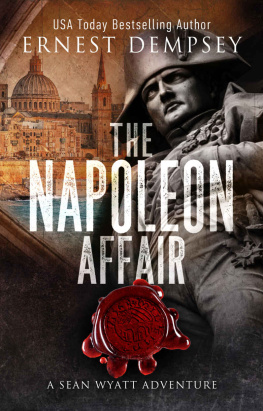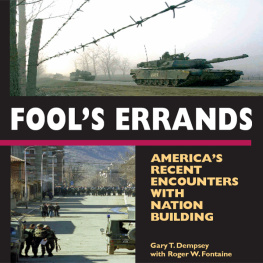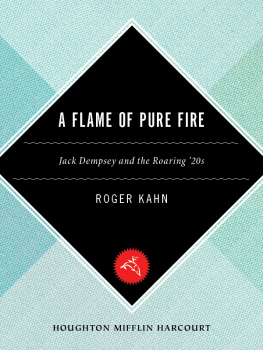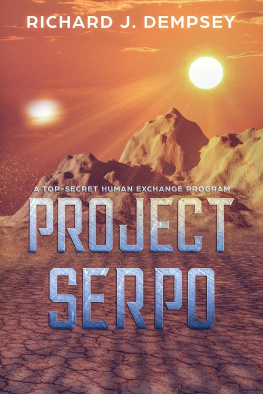Ernest Dempsey [Dempsey - The Napoleon Affair
Here you can read online Ernest Dempsey [Dempsey - The Napoleon Affair full text of the book (entire story) in english for free. Download pdf and epub, get meaning, cover and reviews about this ebook. year: 2019, publisher: 138 Publishing, genre: Detective and thriller. Description of the work, (preface) as well as reviews are available. Best literature library LitArk.com created for fans of good reading and offers a wide selection of genres:
Romance novel
Science fiction
Adventure
Detective
Science
History
Home and family
Prose
Art
Politics
Computer
Non-fiction
Religion
Business
Children
Humor
Choose a favorite category and find really read worthwhile books. Enjoy immersion in the world of imagination, feel the emotions of the characters or learn something new for yourself, make an fascinating discovery.
- Book:The Napoleon Affair
- Author:
- Publisher:138 Publishing
- Genre:
- Year:2019
- Rating:4 / 5
- Favourites:Add to favourites
- Your mark:
- 80
- 1
- 2
- 3
- 4
- 5
The Napoleon Affair: summary, description and annotation
We offer to read an annotation, description, summary or preface (depends on what the author of the book "The Napoleon Affair" wrote himself). If you haven't found the necessary information about the book — write in the comments, we will try to find it.
Ernest Dempsey [Dempsey: author's other books
Who wrote The Napoleon Affair? Find out the surname, the name of the author of the book and a list of all author's works by series.
The Napoleon Affair — read online for free the complete book (whole text) full work
Below is the text of the book, divided by pages. System saving the place of the last page read, allows you to conveniently read the book "The Napoleon Affair" online for free, without having to search again every time where you left off. Put a bookmark, and you can go to the page where you finished reading at any time.
Font size:
Interval:
Bookmark:
Visit ernestdempsey.net to get a free copy of the not-sold-in-stores short story, RED GOLD.
Youll also get access to exclusive content not available anywhere else.
"Y ou cannot go in there!" the old priest commanded. "This is a holy place, not a place of war and death."
"Get him out of here," the General said. He marched through the hall, taking long strides with every step, though long was subjective for the diminutive leader.
Two of his soldiers grabbed the priest under the arms and dragged him backward. The man yelped and shouted. He'd been speaking French before, but the curses and warnings emitted now were in Latin. As he was pulled farther from the general, the priest's angry protests faded to muted whimpers.
The Co-Cathedral of Saint John the Baptist was crawling with soldiers rushing between cells, rooms, and offices, carelessly tossing furniture, papers, and other ordinary day-to-day items onto the floor. They moved like locusts swarming through a harvest and consuming everything in their path; never satisfied, their hunger never filled.
The general stopped at an intersection in the corridor and looked back at his men. This was hardly the way he desired to search the house of God; then again, he wasn't a very religious person. He'd been baptized as a child into the Catholic faith, but the church's dogmatic views and guidelines had never truly taken root with him. He did, however, appreciate the measure of control religion could hold over people. In that regard, he almost admired the church, occasionally wishing that he, too, could exercise such sway over not only the nation of France but the entire world.
He respected most religions and believed that all belief systems should be honored. The general was not only a tolerant man, but wise beyond the understanding of many of his contemporaries. He believed that people should be permitted to worship as they chose; to embrace the cultures they'd established long ago. And he also understood the strategic advantage of honoring those who dwelled in the lands he conquered. It was no ruse, no falsehood that he told his soldiers to respect Christians, Muslims, Jews, and any others of different beliefs. He truly embraced that approach. He also embraced the benefits that came with such teachings, such as the ability to control the masses. And Napolon was all about control.
Alas, he was only a man, alone in the world as a beacon of light and hope shining toward a brighter future for allan ideal he believed to his very core. Wars, disease, pestilence, and death had all ravaged Europe, and little mercy had been meted out to his beloved France. All the while, those at the top of society had suffered little, sending out their soldiers to do their dirty work, fight their wars, claim them new lands and titles, all of which would be taxed to the breaking pointof course.
To the populace, Napolon had represented change, something new for the people of France. He'd offered them hope in the unusual form of a squat general with a knack for military strategy and tactics.
Leading the people through a series of fantastic victories, he'd set his sights on foreign territories to further expand hisinterests. Napolon had the ambition of a lionhis thirst for power unrivaledand only a few of his trusted advisers, his only real friends in this world, knew of his ultimate goal.
To achieve it, though, he would need something of note, a catalyst that would enable him to lay a legitimate claim to new realms, an artifact of unprecedented power and esteem. It would also have to be a holy relic, something that gave him authorityboth of earth and of heaven.
He'd known about the island nation of Malta for a long time, but it was only recently that hed learned of the treasure housed in this very place, this temple to the Almighty.
Napolon often questioned loyalty to a master that seemed so uncaring, so ambivalent toward his own creations. He certainly believed that there was a higher power at work in the universe; he just didn't believe that higher power cared about him as an individual, or about his nation.
Turning from his men he continued walking straight ahead and then turned right into the church's atrium. It was a glamorous lobby, but nothing he'd seen so far compared to the opulence of the grand sanctuary. Most of the hallsincluding the one in which he now stoodfeatured grandiose archways coated in gold filigree and separated by masterfully painted scenes from the Bible. The sanctuary was a larger version of the other corridors: much taller, wider, and grander in every conceivable way.
For the briefest of moments, the battle-hardened general was taken aback by the splendor of the cathedral. Designed by the baroque master Mattia Preti, the interior was every bit as spectacular as the exterior was rudimentary and functional. Not that the Maltese limestone, out of which the building had been constructed, wasn't beautiful. It was, however, designed to look as much like a fortress as a place of worship. That, perhaps, was due to those who had engineered it.
The Knights Hospitaller, also known as the Order of Malta, had been responsible for that holy task. They took it upon themselves to design and even fund the structure, with much of the money coming from their own coffers as well as from personal contributions from within their own ranks.
While they'd made the outside look almost imposing, the interior was more exquisite than many palaces Napolon had seen. The high, gilded archways above separated scenes depicting the life of Saint John the Baptist.
There were nine chapels that branched out from the main sanctuary, each dedicated to various languages, peoples, and sects, but all equally as magnificent as the rest of the building, simply smaller.
Napolon marched through the center of the sanctuary, his boots irreverently clicking on the marble tiles underfoot as he made his way toward the front of the church where the presbytery was located.
Two of his guards stood either side of a priest who was kneeling before the altar. Napolon focused his attention on the man, doing his best to avoid the myriad distractions of glitter and shine all around him, however he did catch something of note as he stalked toward the front. One of the columns was emblazoned with the letters RC. Another featured the letters NC in long, diagonal rows. Between the grouped letters was the easily recognized cross of the Order of the Knights of Malta, the Knights Hospitaller. They'd also been known by a few other names, the more apt of them being the Knights of Saint John or the Order of Saint John.
The Siege of Valletta and subsequent takeover had seen resistance from the Maltese people, especially from the knights. They'd fought valiantly, honorably, and died in the same way. Napolon knew that some had escaped, but eradicating an ancient sect of a fading chivalric order was not his primary goal here. Neither was taking over the island for any length of time. He would leave a small contingent, probably around three thousand soldiers, in the garrison on the island. That represented roughly 10 percent of his forces, enough to make it look like he was trying to establish a stronghold in the Mediterranean but not so many that it would hurt his advances in Egypt.
His plan was to leave as soon as possible, making for Alexandria the moment he had the relic in his possession. The priest was the key to finding said relic.
Napolon walked the last fifty feet with his eyes focused directly on the man in the priestly vestments. He paid no attention to the marble tiles beneath his feet that marked the graves of 375 knights, all entombed within the confines of the church to be forever under the protection of God and of his servant Saint John the Baptist.
Font size:
Interval:
Bookmark:
Similar books «The Napoleon Affair»
Look at similar books to The Napoleon Affair. We have selected literature similar in name and meaning in the hope of providing readers with more options to find new, interesting, not yet read works.
Discussion, reviews of the book The Napoleon Affair and just readers' own opinions. Leave your comments, write what you think about the work, its meaning or the main characters. Specify what exactly you liked and what you didn't like, and why you think so.










